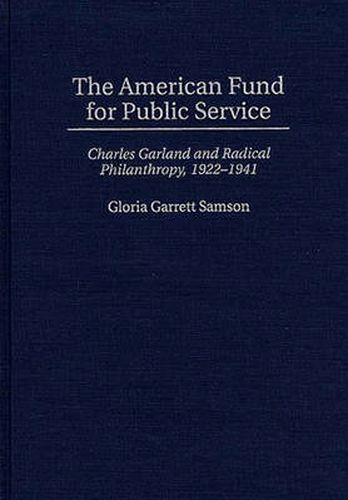Readings Newsletter
Become a Readings Member to make your shopping experience even easier.
Sign in or sign up for free!
You’re not far away from qualifying for FREE standard shipping within Australia
You’ve qualified for FREE standard shipping within Australia
The cart is loading…






This study examines one organisation from the radical left of the 1920s and 1930s: the American Fund for Public Service. Little known today, but infamous in its time, the American Fund represented a united front of anticapitalists - anarchists, socialists, communists, and left-liberals - which attempted to revitalise the left in order to end capitalism and, therefore, war. Financed by Charles Garland, an eccentric, 21-year-old Harvard dropout, the Fund performed the difficult task of allocating relatively meagre resources among the most promising radical ventures, typically militant labour organisations. The philanthropy’s directors represented a who’s who of the labour left of the period: Roger Baldwin, Norman Thomas, Scott Nearing, James Weldon Johnson, and more. The fund anticipated philanthropies later in the century which meant to challenge the status quo beyond reformism. This study should be of interest to scholars of labour relations, radical politics, American history and philanthropy.
$9.00 standard shipping within Australia
FREE standard shipping within Australia for orders over $100.00
Express & International shipping calculated at checkout
This study examines one organisation from the radical left of the 1920s and 1930s: the American Fund for Public Service. Little known today, but infamous in its time, the American Fund represented a united front of anticapitalists - anarchists, socialists, communists, and left-liberals - which attempted to revitalise the left in order to end capitalism and, therefore, war. Financed by Charles Garland, an eccentric, 21-year-old Harvard dropout, the Fund performed the difficult task of allocating relatively meagre resources among the most promising radical ventures, typically militant labour organisations. The philanthropy’s directors represented a who’s who of the labour left of the period: Roger Baldwin, Norman Thomas, Scott Nearing, James Weldon Johnson, and more. The fund anticipated philanthropies later in the century which meant to challenge the status quo beyond reformism. This study should be of interest to scholars of labour relations, radical politics, American history and philanthropy.